Crypto Points Explained: Legal Risks, UseCases, and the Future of Web3 Rewards
From gamified incentives to blockchain loyalty schemes, crypto points are quickly becoming one of the most discussed phenomena in the Web3 ecosystem. But what are crypto points, how do they work, and what are the legal risks surrounding them?
In a recent Disputes Decoded episode—co-hosted by ArbTech and Tales of the Tribunal—Chris Campbell sat down with legal expert Josh Klayman and financial strategist Ferdinando Samaria to unpack this evolving topic. What followed was a wide-ranging discussion on gamification, regulation, airdrops, secondary markets, and the ethics of digital incentives.
Let’s break it down.
What Are Crypto Points?
Crypto points are non-tokenized digital rewards issued by platforms—often in the blockchain or gaming space—to attract and engage users. They’re reminiscent of traditional loyalty programs like airline miles or credit card points, but with a Web3 twist. “They’re like air miles for crypto projects,” said Samaria, “but with far less transparency.”
Unlike tokens, which typically exist on a blockchain and come with defined terms, crypto points are often:
● Not stored on-chain
● Not backed by smart contracts
● Not clearly convertible to value
Their purpose? Build early traction, encourage behavior (such as staking or usage), and possibly—but not always—lead to future airdrops or token rewards.
“From a US legal perspective, the big question is always: are these securities? ”
Legal Ambiguity: Are Crypto Points Securities in Disguise?
A central issue raised during the webinar is whether crypto points could trigger regulatory scrutiny, especially if they create an expectation of future value. “From a US legal perspective, the big question is always: are these securities?” noted Klayman.
That question often invokes the Howey Test, which determines whether a transaction qualifies as an investment contract. If users put in time, computation, or even money, and expect future returns based on a platform’s efforts, then regulators like the SEC might interpret crypto points as investment vehicles—even if no tokens are initially involved. Add in the potential for airdrops, secondary market speculation, or future token conversions, and the legal picture becomes even murkier
Gamification vs. Capital Raising
Klayman introduced a compelling counterpoint: what if crypto points are just game mechanics? Think leaderboards in exercise apps, or “skins” in video games—points as pure engagement, not investment. In that case, there may be no financial expectation, and thus, no security.
But Ferdinando wasn’t entirely convinced: “Even time spent playing a game is a form of investment,” he argued. “Nothing is free. If you’re giving your attention and activity, and the platform benefits, that’s a transaction—even if there’s no blockchain involved.”
The key takeaway? Intent and communication matter. Is the user being led to believe their effort will be financially rewarded? If yes, platforms may inadvertently be setting up legal liability.
The Risks: Transparency, Abuse, and Market Pollution
Crypto points are attractive to platforms because they’re unregulated, flexible, and cheap to issue. But this comes at a cost:
● Lack of transparency around how many points exist or what they’re worth
● No enforceable terms or contracts
● Potential for abuse, including bots gaming the system or fake wallet activity to farm rewards
● User disappointment when airdrops or rewards fall short of expectations
“It’s a unilateral trade,” said Samaria. “You’re asked to commit time or value to a platform that may not even tell you what you’re getting.”
Jurisdictional Complexities
The legal landscape varies by region:
● In the US, offering crypto points that become tradable tokens may trigger securities, KYC, and anti-money laundering requirements.
● Some platforms try to avoid legal risk by geo-fencing US users or disclaiming any financial value.
● Other jurisdictions, like the EU or Singapore, have developing frameworks that may treat these reward systems differently. “You have to walk the talk,” Klayman added. “If you’re excluding the US, are you really making that enforceable?”
Lessons from ICOs, Airdrops, and Gaming
The panelists compared crypto points to earlier trends like:
● ICOs (Initial Coin Offerings): now often avoided due to legal scrutiny
● Airdrops: increasingly regulated as potential forms of compensation
● Play-to-earn gaming: where tokens or NFTs are earned through in-game effort
Crypto points, in contrast, are often presented as pre-token placeholders—but the lack of structure, unrealistic expectations, and secondary speculation could create serious legal fallout.
Klayman highlighted a historical case—SEC v. Tomahawk—where “free” tokens distributed for marketing efforts were deemed a securities transaction. The takeaway? “Free” doesn’t mean risk-free.
The Future of Crypto Points: Regulation or Reinvention?
So where are crypto points headed?
Both experts predict that crypto points in their current form may not survive. Increased regulation, standardized disclosures, and clear terms and conditions will become necessary if platforms want to maintain trust and scale.
Samaria urged platforms to shift from vague promises to professional-grade documentation: “We need the equivalent of offering circulars—not just whitepapers and marketing hype.” Klayman agreed but noted that points aren’t going away—especially with the convergence of Web3, gaming, and AI. As long as community-building remains essential, points will persist. But platforms will need to treat them with the seriousness of financial instruments, not just engagement tools.
What You Should Know About Crypto Points
Before participating in or launching a crypto points program, ask:
1. Is there a clear value proposition?
2. Are terms and conditions publicly available?
3. Could this be interpreted as an investment?
4. Is there geographic or regulatory risk involved?
5. What kind of precedent are we setting for the space?
If crypto points are going to fulfill their potential, they’ll need to mature beyond their current ambiguity.

